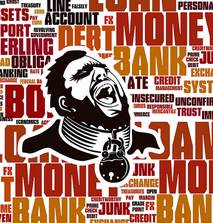Five Activities That Can Ruin Your Credit Score

If you look on the Internet, you can easily find ways to fix your credit score. From paying your bills on time to disputing incorrect entries, there are dozens of ways to try to repair your score once it has taken a hit. But it is much better not to trash your score in the first place!
Here are five activities that will ruin your credit score faster than you can blink:
1.Skipping Payments
Before you take on another credit card or decide you need a more expensive car, you better be sure that you’ll be able to make all of your payments on time. Credit card and loan companies will report any missed payments to the credit bureau almost immediately. If you think that you’re going to miss a payment, contact your lender immediately and find out if there are arrangements that can be made that won’t hurt your Credit Rating.
2.Applying for Credit
You should never apply for credit that you don’t need. Each inquiry into your credit report is a black mark against your credit. While one or two inquiries won’t hurt you, multiple inquiries will. Future loan companies will look at a large number of inquiries as an indicator that other companies weren’t willing to extend you credit. Before you apply for a credit card or loan, pull a copy of your credit report and make sure that you will qualify.
3.Carrying Too Much Debt
Even if you can pay your bills, carrying too much debt can hurt your credit score. On average, you should have no more than two major credit cards and one store card. If you need more credit, contact your current credit card companies and ask about having your limits raised. This will get you the money you need without having to resort to opening multiple accounts. If you are a customer in good standing, most card companies will happily raise your limits.
4.Not Balancing Debt Ratio
A balanced debt ratio is the ratio of credit to debt. If lenders agree to issue you $10,000 worth of credit and you are up to the limit you are maxed out and this looks bad on your credit report. However if you have a $10,000 credit limit and you are only using $3,000 then lenders know you are acting responsibly and can be trusted to handly your credit wisely. So be sure that your credit-to-debt ratio is at optimal levels. Your debt ratio should be no more than 25 to 30 percent of your total credit limit.
5.Filing Bankruptcy
Unfortunately, filing bankruptcy may be the best option if you are in over your head when it comes to debt. If filing can be avoided, however, do so at all costs. Bankruptcy not only completely shatters your credit score, but it can stay on your report for up to ten years. While it may be easier for you to start over with bankruptcy, you should speak to a financial advisor before you pursue this avenue.
Remember that you won’t have to spend time fixing your credit score if you don’t ruin it in the first place. If you understand how your credit score is calculated, keeping it healthy is quite simple. Pay attention to the facts above and you won’t find yourself needing major repair work when it comes to your credit report.
See Also:
- The Importance of Building Credit as a Young Adult
- The True Meaning of Success
- Using Credit Cards Can Make Or Break Your Financial Situation
- Do your credit cards work for you or is it the other way round
- 10 Tips for Managing Credit Card Debt
- 5 Don’ts for Your First Student Credit Card
- How to Start Your Credit History
- The Secret to Making More Money: Stay in School
- 5 Ways to Get Money for Your Business Start Up
Credit Score Resources from Amazon:
- Your Credit Score: How to Improve the 3-Digit Number That Shapes Your Financial Future (4th Edition) (Liz Pulliam Weston)
- Hidden Credit Repair Secrets: 2nd Edition
- The Credit Repair Black Book: Credit Repair Secrets and Strategies the Credit Bureaus Won’t Tell You
- Credit Warfare: Advanced Credit Repair and Debt Collection Strategies for the Novice and Expert User, Vol. 1


